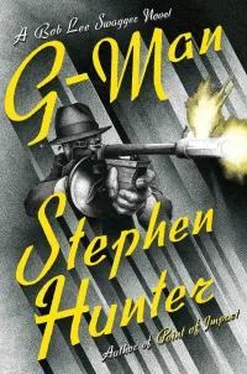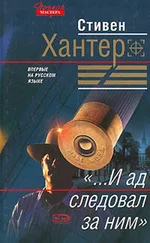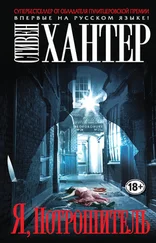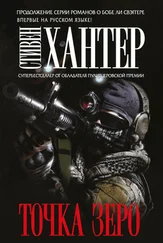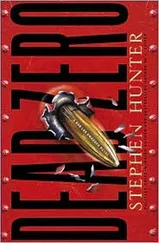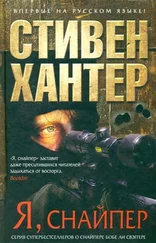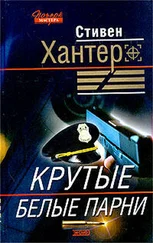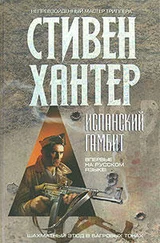Стивен Хантер - G-Man
Здесь есть возможность читать онлайн «Стивен Хантер - G-Man» весь текст электронной книги совершенно бесплатно (целиком полную версию без сокращений). В некоторых случаях можно слушать аудио, скачать через торрент в формате fb2 и присутствует краткое содержание. Жанр: Старинная литература, на английском языке. Описание произведения, (предисловие) а так же отзывы посетителей доступны на портале библиотеки ЛибКат.
- Название:G-Man
- Автор:
- Жанр:
- Год:неизвестен
- ISBN:нет данных
- Рейтинг книги:3 / 5. Голосов: 1
-
Избранное:Добавить в избранное
- Отзывы:
-
Ваша оценка:
- 60
- 1
- 2
- 3
- 4
- 5
G-Man: краткое содержание, описание и аннотация
Предлагаем к чтению аннотацию, описание, краткое содержание или предисловие (зависит от того, что написал сам автор книги «G-Man»). Если вы не нашли необходимую информацию о книге — напишите в комментариях, мы постараемся отыскать её.
G-Man — читать онлайн бесплатно полную книгу (весь текст) целиком
Ниже представлен текст книги, разбитый по страницам. Система сохранения места последней прочитанной страницы, позволяет с удобством читать онлайн бесплатно книгу «G-Man», без необходимости каждый раз заново искать на чём Вы остановились. Поставьте закладку, и сможете в любой момент перейти на страницу, на которой закончили чтение.
Интервал:
Закладка:
“Someone fixed the grammar and spelling, for sure, but that’s him. And he knew what he was talking about,” said Bob.
“In that time period, only a few did, but they didn’t have the Bureau’s ear. I’m thinking of Elmer Keith, Ed McGivern, maybe some others. The other handgun-and-tactics writers and thinkers didn’t come along until after the war.”
Bob nodded.
“It really seems to cement the case,” said Nick.
“Well,” said Bob, “still in the goddamned ‘circumstantial’ zone. But maybe there’s something else here.”
“I missed something?”
“Not at all. But this paragraph, page 4, bottom, and on to page 5, top, is interesting.”
Nick read:
“‘It is also suggested that the Division field offices hire or place under part-time contracts professional gunsmiths, as opposed to the current practice of appointing an armorer from among the agent pool. Gunsmithing is a fine art, and a man who has mastered the intricacies and nuance of firearms can contribute a great deal more than simple maintenance, cleaning, minor repair, and cataloging, which is the limit of the armorer’s abilities. A gunsmith, for example, can transform a stock automatic into a far more useful fighting tool that will give our agents the advantage, particularly in close-range public arrest situations that are so likely to occur. A Government Model Colt .45 ACP, for example, can be improved for reliability by judicious filing of the joinery between frame and barrel; its tiny sights, almost worthless in any kind of shooting event, can be replaced with larger sights, which are easier to pick up in the blur of action. The sights can also be painted red or white, again for faster visual acquisition. The grip safety, which all too frequently prevents a quickly drawn pistol from coming off safe if the agent misplaces his hands, can be neutralized, either temporarily by a rawhide tie-down or more permanently by the usage of a tapped screw. The safety lever on the frame can be enlarged, so that the thumb naturally falls upon it and depresses it with one hundred percent reliability in emergency situations. Finally, the trigger can be rendered, by polishing certain interior surfaces, much smoother, so that the gun is not apt to betray its shooter with a pulled shot when the uneven or gritty trigger pull torques the muzzle off target.’”
“I did see that,” said Nick. “As I recall, the pistol you recovered from the strongbox in the foundation had been worked on in exactly that way.”
“It had. I shot it, I think I told you, and it was a solid piece of work.”
“But you think it has other significance?”
“Hmm, maybe. Maybe he did it right away, when he was issued it. But he was very busy, he was trying to impress people, first-day-on-new-job bullshit, he wanted to hit the ground running, maybe he didn’t have the time. Maybe also he wanted to wait a bit until he’d built a reputation and was respected by management before he took a file to a piece of government-issue equipment. Some might have considered such an enterprise vandalism of government property. He’d want cover before he did it.”
“Unprovable, but it makes sense via the universal workplace rules that apply everywhere, from the Third Reich to the building of the Pyramids and back, on up to NASA: the star gets to do what he wants. But I’m still not sure where this is going.”
“Given that, what would impel him to take the file to the metal?”
“An upcoming arrest,” said Nick. “Potential for action. He had to get the gun up to his standards if he knew he was going to a shoot-out.”
“That’s it.”
“I get it. You think he was on the Dillinger team. He shot John Dillinger.”
“It was his kind of party. It was what they brought him in to handle.”
Nick chewed it over. The identity of the agent who shot Dillinger had never been released, as per the Director’s mandate that no individual got the glory, the outfit did. Most people assumed it was Melvin Purvis because he was the “face” of the Division in those days, though Purvis himself had never made such a claim.
“I wonder if there’s any way of proving it?”
“The serial number was recorded, even if his name was redacted. It was one of ten pistols received from the Postal Department, C-variants shipped to the Chicago Field Office. That particular one was marked ‘Duty Loss,’ but the other nine remained in service until they were retired, whenever. If we know that the agents they were issued to weren’t present during the Dillinger shooting — those being the only issued .45s in Chicago — then that lost pistol had to be the one. That seems pretty airtight.”
“I think you’re on to something.”
“But here’s where I’m going with this. Remember how I said I couldn’t figure out a money angle? There was no treasure. Why was I being followed? You told me it’s always about money. I’m just following your advice.”
“Sometimes I’m so brilliant, it amazes even me,” said Nick.
“That gun — the verified pistol that shot John Dillinger dead in Chicago, July twenty-second, 1934, at the Biograph Theater — that gun might be worth… I don’t know… thousands… hundreds of thousands…”
“It should go to the Bureau.”
“It should. But if somebody who knew the rare-gun trade, who had contacts, who had connections in the black market, and knew a lot of wealthy collectors — let’s take it another step — maybe then there are other guns from that era that my grandfather somehow ended up with — that trove of guns, all of them verifiable by serial number — Jesus Christ, now I see it — maybe even Baby Face’s Monitor, we could be talking millions.”
Then he sighed.
“Now all we have to do is solve the map and prove that Charles was in fact in the Bureau.”
“Details, details,” said Nick.
PART IV
CHAPTER 42
ST. PAUL, MINNESOTA
August 23, 1934
“There he is,” said the St. Paul detective, Sergeant Brown. “He’s walking a little gimpy, but they say he’s been loopy since he got shot in the head.”
Charles and the three St. Paul officers, including the chief and the ex-chief, watched from their unmarked Ford as the man dipped across the broad, busy expanse of University Avenue at Marion Street, a perfectly unremarkable crossroads in a perfectly unremarkable section of a perfectly unremarkable city.
It was indeed Homer Van Meter, as Charles had stared at the photos for hours, committing the man’s surprisingly pleasant features to memory: the thick hair, parted on the left, combed right; the lanky frame; the prominent nose and strong chin; the dark eyes. He had a gangling roll to his stride, looked confident, solid, like a taxpayer with no worries in his head, if just a bit shabby. Hard to believe — but, then, it always was, that was the mystery of these fellows — that, inside, he was a cool-handed killer.
This one was tricky. It was Sam’s suggestion, after Uncle Phil had given Charles a solid where-when on Van Meter, that the Division take a low-profile approach on this one, unlike, say, the Dillinger arrest, where they’d flooded the street with agents.
“If the Division came crashing into town, there’d be squawks, tiffs, turf wars, lots of bitter squealing, lots of feathers sent flying,” Sam had said. “Not good. Leaks would spring, and Homer’d take off for Kansas City. Moreover, rancor and contempt between the Division and the St. Paul cops could get the Division a size-18 reputation in law enforcement circles, something the Director is keen to avoid.
“So, Charles, I want you to handle this as quietly as possible. I’d make it abundantly clear to our St. Paul friends that the Division has no interest in Homer on the subject of Minnesota corruption. We could care less. Our task is to take down the big interstate bank gangs, member by member. That’s all we want. What we do with Homer once we get him singing is something yet to be determined.”
Читать дальшеИнтервал:
Закладка:
Похожие книги на «G-Man»
Представляем Вашему вниманию похожие книги на «G-Man» списком для выбора. Мы отобрали схожую по названию и смыслу литературу в надежде предоставить читателям больше вариантов отыскать новые, интересные, ещё непрочитанные произведения.
Обсуждение, отзывы о книге «G-Man» и просто собственные мнения читателей. Оставьте ваши комментарии, напишите, что Вы думаете о произведении, его смысле или главных героях. Укажите что конкретно понравилось, а что нет, и почему Вы так считаете.
